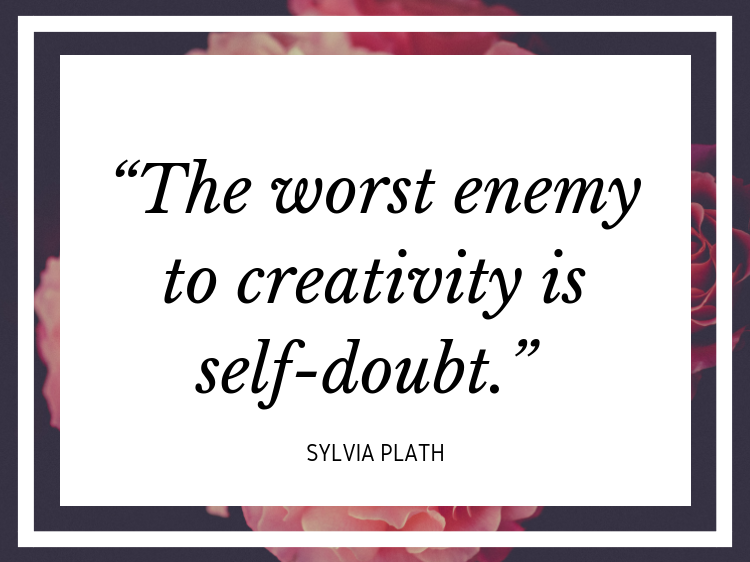Unconventional Mentor no. 14 - Sylvia Plath
“The worst enemy to creativity is self-doubt.”
“The worst enemy to creativity is self-doubt.” - Sylvia Plath
This week The Book of the Week on Radio 4 has been The Letters of Sylvia Plath volume 2, written between 1956 and 1963. I often catch bits of Book of the Week if I can’t sleep (it’s on just after midnight) and this week I’ve been thinking a lot about Sylvia Plath and her life. I first read her book The Bell Jar when I was at university. I remember being jarred by the downward spiral of the protagonist in the story. It starts out so glamorous in 1950s New York and ends up with everything falling apart. I’ve never been much into reading poetry, I find it very hard, but I am really interested in the diaries and letters that people write so I will be getting this and the first volume of letters, so I can find out more about this fascinating woman.
Sylvia Plath was a complex character, but she wrote so eloquently about it drawing on her life to inform her work. The Bell Jar was semi-autobiographical and her best most well-known poetry collection Ariel was written in the aftermath of discovering her husband’s infidelity. It is hard to believe that she was only 30 when she died, and it is such a loss to the world that she didn’t get to live a long life and write about all of her those experiences.
Interest in Sylvia Plath continues today. With the leaking of the letters to her psychiatrist (which are included in volume 2 of her letters) the press went wild with speculation that Ted Hughes was physically violent towards her and caused her to suffer a miscarriage. There are numerous websites dedicated to her, and you can even read a list of all of the books that she had in her library. I also found a brilliant site by Gail Crowther and I really want to read her biography “Sylvia Plath in Devon, A Year’s Turning” written in conjunction with Plath’s friend Elizabeth Sigmud. It is a look at one year in Sylvia Plath’s life when she was living in Devon and writing her poems for Ariel.
“What is my life for and what am I going to do with it? I don't know and I'm afraid. I can never read all the books I want; I can never be all the people I want and live all the lives I want.”
I think there is something inspiring about the honesty that Sylvia Plath brought to her writing. This quote is from her journal, but I think this feeling comes across in all of her writing, she draws on the feelings of doubt an uncertainty that we all feel about our lives.
Sylvia Plath is very well known today, I remember learning about her a bit in high school but interestingly she is considered overlooked and has been featured in The New York Times Overlooked obituaries project. With her letters and work continuing to be published today she is now getting the recognition that she may not have had in her lifetime.
Mentor advice: Trust your work and push through any feelings of self-doubt.
The advice that I take from Sylvia Plath is to not be afraid of your own story, to trust that your work is good and push through any doubt that you might have. Sylvia Plath’s short life could be seen as tragic, that she experienced loss and infidelity, dealt with crippling depression and ultimately took her own life. And yet she inspires so many people 55 years after her death. Despite all of that difficulty she found a way to keep writing and doing her work. Sylvia used her experiences of her husband’s infidelity to write some of her best poetry. The fuller version of the wrote I used at the beginning of this piece gives a greater insight into how she approached self-doubt
“And by the way, everything in life is writable about if you have the outgoing guts to do it, and the imagination to improvise. The worst enemy to creativity is self-doubt.”
I love that “the outgoing guts to do it and the imagination to improvise” are what you need to get you through. At 36 I am finding that I am getting more confident and comfortable being myself. I am experiencing self-doubt less in part because I am comparing myself less to other people, not worrying what other people think and learning that I can be resourceful in improvising when I need to. I also know that when I experience self-doubt it is not good for anything, so I need to ignore it and maybe re-read my own advice from my blog about imposter syndrome!
To find out more about Sylvia Plath and everything about her check out this very detailed website
